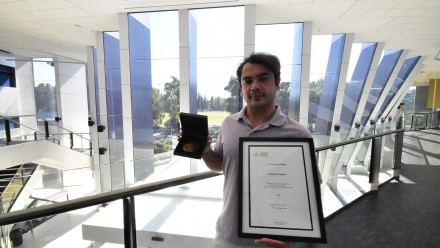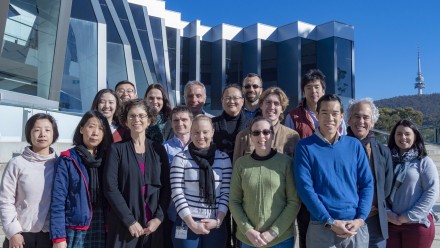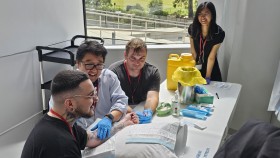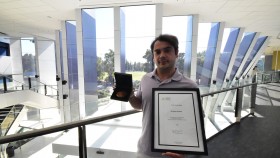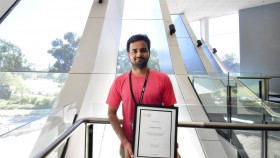Funding continues for rare disease research in Canberra
Genomics testing in the ACT is being further embedded into the Canberra health system with a new agreement signed between Canberra Health Services (CHS) and the Australian National University (ANU) to continue their joint diagnostic venture, Canberra Clinical Genomics.
Since the Canberra Clinical Genomics (CCG) laboratory began in late 2017, more that 300 patients have been analysed for a variety of rare diseases.
These rare diseases include congenital disorders, developmental disabilities, cardiac conditions, renal presentations, immunology disorders and neurology syndromes.
In an article in The Canberra Times, Nick Townsend, a patient of CCG, and his family speak of their relief in finding a diagnosis for his rare condition.
At 22 years old, Nick has been diagnosed with Skraban-Deardorff syndrome and his family hopes family hopes his diagnosis would steer him in the direction of more opportunities and tailored support.
Professor Matthew Cook is the Director of Canberra Clinical Genomics, and with access to the facilities and researchers at The John Curtin School of Medical Research, he assisted the Townsend family in finding this diagnosis.
Through the collaboration, CHS and the ANU have access to state-of-the-art patient testing to identify variants anywhere in the genome to account for development of rare disease.
CCG helps families who need to know more about the genetic basis of their rare disease or life-threatening conditions.
This new agreement, which secures funding for the next five years, means families in the ACT (and surrounds) will continue to have access to the NATA accredited whole exome testing that can help explain the genetic basis of disease.
Funding also supports additional technical developments to ensure access to appropriate tests in this fast-moving field.
Fittingly, the agreement was signed ahead of World Rare Diseases Day, which encourages researchers and decision-makers to address the needs of people who have rare diseases.
You can find out more about Canberra Clinical Genomics on their website.







